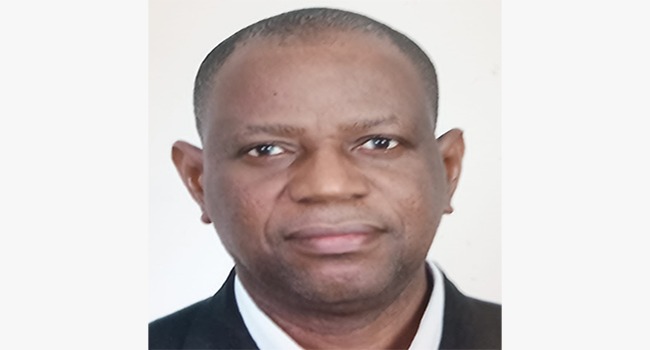A former General Manager Legal Department at the Petroleum Technology Development Fund, PTDF, Dr. Balarabe Z. Ahmad, has urged Nigerians to conduct further research on solar photovoltaic enterprises in order to navigate market uncertainties through business model innovation and dynamic capabilities.
Emphasizing on his recent research work ‘Navigating Market Uncertainties Through Business Model Innovation and Dynamic Capabilities: Insights from Nigeria’s Solar PV Enterprises’, Ahmad who bagged his doctor of Business Administration on the 7th of April, 2024 from the Grenoble Ecole De Management, France, encouraged Nigerians to take full advantage of solar photovoltaic enterprises in order for the country to make optimum use of the hot weather it is endowed with.
Speaking on his research work, he said, “This study offers vital contributions to the fields of Business Models (BM), Business Model Innovation (BMI), and Dynamic Capabilities (DC), with a specific focus on Solar Photovoltaic Enterprises (SPVEs) operating in Nigeria. The analysis provides a detailed exploration of the types of uncertainties SPVEs encounter and how they adapt to these challenges using innovative business models and organizational capabilities.

“A key contribution to the BM literature is the categorization of business models used by SPVEs into four archetypes: Pay-What-You-Want (PWYW), Dynamic, Matrix-shaped, and Open models. These categories help to clarify the diverse approaches solar firms adopt in response to market uncertainties. For instance, PWYW models, such as subscription and hire-purchase schemes, address customer payment concerns by offering flexible pricing to appeal to low-income groups.
“Dynamic models, including leasing and peer-to-peer options, enhance adaptability to changing customer preferences and ownership needs. Matrix-shaped models, which include premium services like Anchor Load Service and AC Village Mini-Grids, cater to higher-income customers but face regulatory and financial uncertainties. Additionally, the study underscores the role of hybrid and pay-as-you-go revenue models in sustaining operations despite economic fluctuations, thereby expanding the literature on BM in emerging solar markets.
“In terms of DC, the research highlights how SPVEs in Nigeria deploy the three core capabilities—sensing, seizing, and reconfiguring—to survive and grow in an unpredictable market. Sensing capabilities involve tracking customer demands and policy changes, while also investing in customer education to raise awareness about solar technologies”.
Dr. Ahmad said seizing capabilities allow firms to mitigate financial and regulatory risks through flexible revenue strategies and partnerships with banks and telecom companies.
He added that reconfiguring capabilities enable firms to restructure their organizations and build internal capacities to adjust to regional market differences, such as urban versus rural energy needs as these findings demonstrate that dynamic capabilities are essential for business model innovation and operational resilience.
Ahmad revealed that a particularly novel aspect of this study is its analysis of the interplay between BMs and DCs in Nigeria’s renewable energy sector, because the findings reveal that dynamic capabilities enhance the responsiveness and resilience of business models.
“For example, sensing economic and customer shifts enables the development of PAYG and hybrid models that are better suited to diverse income groups. Seizing capabilities foster collaborations that help overcome funding and infrastructural barriers, while reconfiguring capabilities allow firms to remain agile in the face of regulatory and logistical challenges.
“This interplay is especially important in emerging markets like Nigeria, where policy and market conditions are often unstable, and where solar firms must constantly adapt to survive”, he added.
The thesis also presents practical implications for both entrepreneurs and policymakers. For SPVEs, the research offers a roadmap for building resilient and adaptable business models through flexible pricing, stakeholder collaboration, and investments in education and capacity development.
“These practices not only support operational stability but also foster customer trust and market expansion. For policymakers, the study emphasizes the need for a supportive regulatory environment that facilitates renewable energy adoption.
“Addressing funding and operational constraints through targeted policy interventions can significantly enhance the impact and sustainability of solar enterprises.
“This thesis contributes significantly to the academic and practical understanding of BM, BMI, and DC in the context of emerging markets. It provides a framework for how SPVEs can turn volatility into opportunity by leveraging their dynamic capabilities. The research sheds light on the unique challenges faced by Nigerian solar firms and presents actionable strategies for fostering sustainable energy solutions through innovation, collaboration, and adaptability”, Ahmad narrated.
He is currently the principal partners and head of chambers at B.Z Ahmad and Co. Legal Practitioners & ADR Consultants, Abuja.





